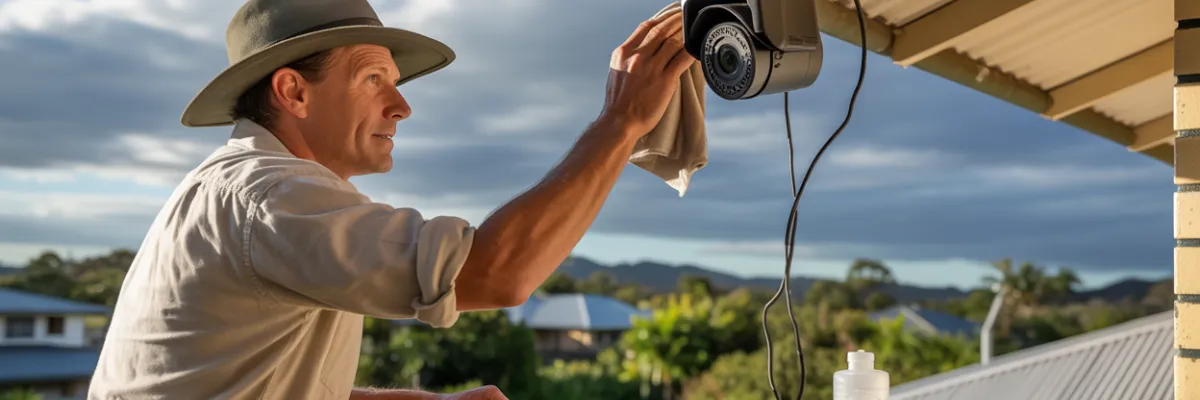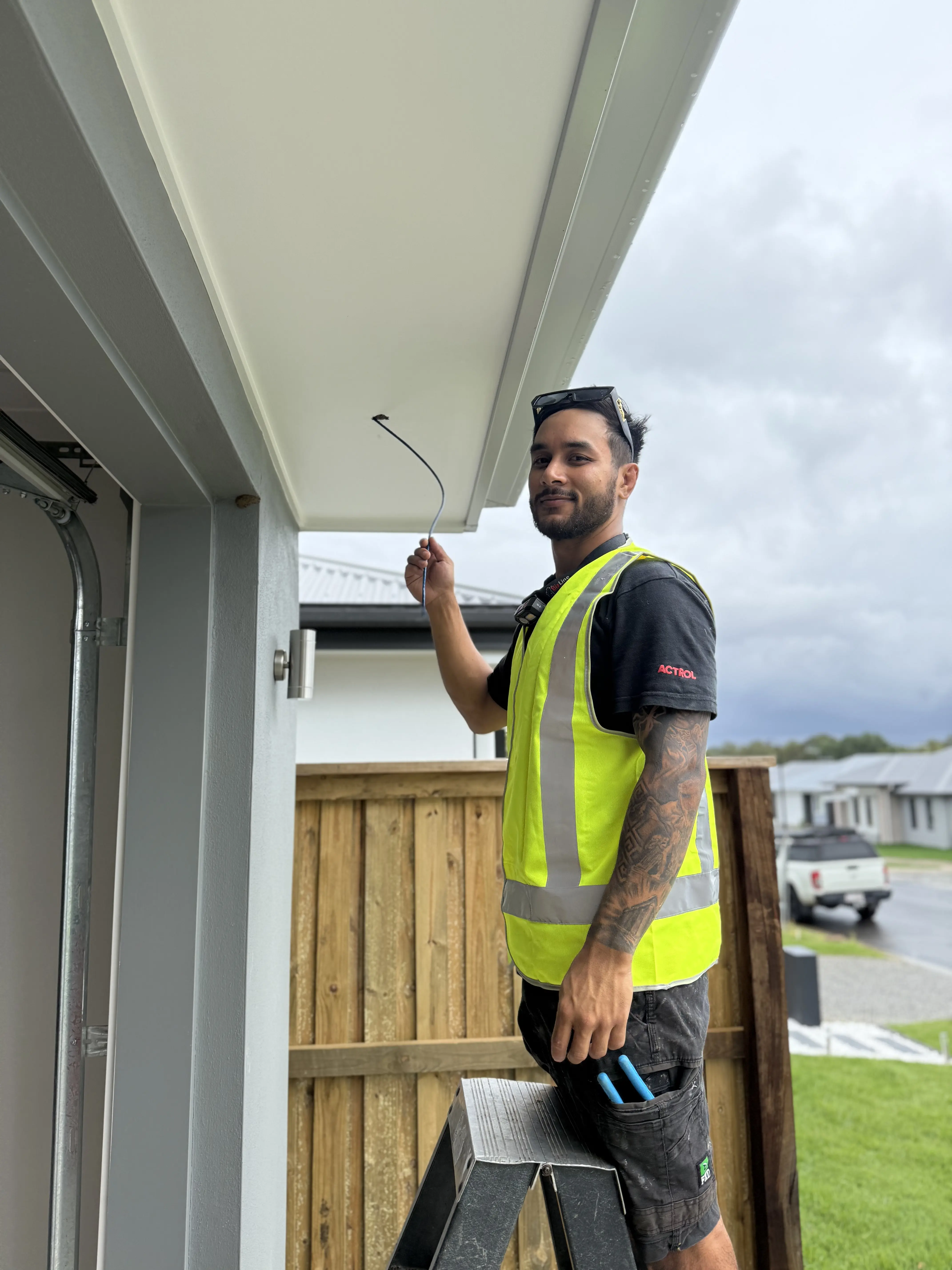
How to Choose Home CCTV Systems That Last: A Brisbane Homeowner's Guide
Did you know that Brisbane experienced over 18,000 break-ins last year, with summer months showing a 32% increase in home invasions? While these statistics are concerning for Brisbane homeowners, there's good news: properties with visible CCTV systems are up to 300% less likely to be targeted by opportunistic thieves.
For Brisbane families like yours in Chapel Hill or similar suburbs, investing in home security isn't just about preventing theft—it's about creating peace of mind while at work, making sure your children are safe after school, and protecting your Queensland home during extended travels or severe storm seasons.
The challenge? Finding your way through the overwhelming sea of CCTV options without compromising on quality that can withstand Brisbane's unique climate challenges.
In this guide, we'll show Brisbane homeowners how to select reliable CCTV systems specifically suited for Queensland-style homes. From weather-resistant features that survive summer storms to remote monitoring capabilities that work with your existing WiFi, we'll cover everything you need to know to make a confident decision that protects your family and property.
Understanding CCTV System Basics for Brisbane Homes
Before diving into specific recommendations, let's break down the basics of what makes a good CCTV system for Queensland properties. This understanding will help you make better decisions when comparing options.
Types of CCTV Systems Suitable for Queensland Properties
When it comes to protecting your Brisbane home, not all CCTV systems are created equal. Here's what you need to know about the main types:
Wired vs Wireless Systems
Wired systems offer more reliable connections during storm season but require professional installation and can be disruptive to install in existing homes
Wireless systems are easier to install yourself and less intrusive on your Queenslander's character, but may have connectivity issues during heavy rain
IP Cameras vs Traditional Analog: IP camera systems provide higher resolution footage and better remote access—perfect for checking on kids arriving home from school while you're still at work. Traditional analog systems are typically cheaper but offer lower quality images that might not capture important details like faces.
Recording Options: NVR vs DVR: NVR (Network Video Recorder) systems work with IP cameras and offer better flexibility for Queensland homes with complex layouts. DVR (Digital Video Recorder) systems are often more budget-friendly but less adaptable to your specific property needs.
Storage Considerations
Local storage gives you complete control but requires maintenance
Cloud-based options provide off-site backup during Brisbane's storm season
Hybrid solutions offer the best of both worlds for working professionals
Essential Features for Brisbane's Unique Environment
Living in Brisbane means your CCTV system needs to handle specific environmental challenges:
Weather Resistance Ratings: Look for cameras with IP66 rating or higher to withstand our tropical downpours. Lower ratings might save money initially but will cost more when you need to replace them after a single storm season.
Heat Tolerance: Brisbane's summers can reach scorching temperatures. Your cameras should be rated to operate in temps up to 50°C to avoid failure during heatwaves.
Night Vision Capabilities: Effective night vision is non-negotiable for Brisbane properties, especially those with large yards or pool areas. Infrared (IR) LEDs should illuminate at least 20-30 meters in complete darkness.
Motion Detection Accuracy: Brisbane's wildlife and swaying vegetation can trigger false alarms. Look for systems with adjustable sensitivity and zone selection to reduce those 3AM false alerts during windy nights.
Remote Viewing Must-Haves: With both parents often working, like Michael at Royal Brisbane Hospital and Sarah at her financial firm, being able to check your property from anywhere is essential. Make sure your system offers:
User-friendly mobile apps that don't require tech expertise
Multi-user access so both parents can monitor
Quick loading even with average internet speeds
Notification settings that can be customized to your family's schedule
Determining Your Home's Specific Security Needs
Every Brisbane home has unique security requirements based on its layout and your family's lifestyle:
Mapping Vulnerable Entry Points - Queensland-style homes often have:
Elevated entry points unique to Queenslander designs
Multiple access areas around swimming pools
Side gates that might be hidden from street view
Large yards with multiple entry possibilities
Coverage for Family-Specific Concerns - Think about your daily routine and what matters most:
Do your children arrive home from school to an empty house?
Are you receiving packages while at work?
Do you travel frequently, leaving your home unattended?
Is your pool area properly monitored for safety?

Quality CCTV Options for Brisbane Homes
Protecting your Brisbane home requires a system that meets your needs. Here's what to look for in quality systems.
System Types for Brisbane Installations
Additional Considerations:
Installation requirements
Monthly cloud storage needs
Weather-resistant components for Queensland climate
Storage capacity requirements
Warranty coverage
Insurance Benefits: Many Brisbane insurance providers offer discounts on home insurance premiums for homes with professionally installed CCTV systems.
Best Performing Brands for Brisbane's Climate
Not all brands perform equally in Queensland's challenging weather. Based on local installation data and customer feedback:
Reliability in Queensland Conditions:
Brands with specific tropical weather ratings perform better
Local support matters when things go wrong during storm season
Check warranty fine print for exclusions related to "environmental damage"
Customer Satisfaction from Brisbane Installations: Local data shows that systems with these features have the highest satisfaction ratings among Brisbane homeowners:
Easy mobile interface for non-technical users
Reliable alerts without excessive false notifications
High-quality video that can identify faces and details
Simple access sharing with family members
Minimal maintenance requirements
DIY vs Professional Installation Comparison
When considering DIY vs professional installation for Brisbane homes:
DIY Installation Considerations:
Equipment requirements
Tools needed for proper installation
Time commitment: 1-3 days for average Brisbane home
Learning curve: Significant for proper setup
Troubleshooting: Often difficult without expertise
Professional Installation Benefits:
Expertise in optimal placement for Queensland homes
Weather-sealing appropriate for tropical conditions
Proper wiring protected from heat and moisture
System testing and verification
Training on effective system use
When Professional Installation Makes Sense:
For Queenslander-style homes with complex layouts
When running cables through walls is necessary
If you want integration with existing smart home features
For proper weatherproofing in Brisbane's climate
When warranty requires professional installation
Installation Considerations for Queensland-Style Homes
Brisbane's unique architecture and climate require special consideration when installing CCTV systems.
Optimal Camera Placement for Maximum Protection
Queensland homes have specific features that affect optimal camera placement:
Strategic Locations for Queenslander Designs:
Elevated entry points and staircases
Under-house areas that may be enclosed or open
Wraparound verandas with multiple access points
High-set windows unique to Queensland architecture
Pool Area Solutions: Monitoring pool areas is especially important for Brisbane families with children. Position cameras to cover:
Pool gate access (required by Queensland law)
The entire water surface
Pool equipment areas where thieves may target expensive pumps
Aesthetic Considerations: Many Brisbane homeowners worry about how cameras will affect their home's appearance:
White or neutral colored cameras blend better with Queenslander trim
Smaller dome cameras are less obtrusive on heritage-style homes
Cable concealment is worth the extra effort for street-facing installations
Some heritage-friendly designs are specifically made for character homes
WiFi and Connectivity Solutions for Reliable Operation
Brisbane's weather and typical home construction can create connectivity challenges:
Overcoming WiFi Dead Zones:
Queensland's timber homes can block wireless signals
Concrete slab foundations in newer homes create signal barriers
Mesh WiFi systems help extend coverage to larger properties
Strategically placed access points improve reliability
Storm Season Reliability: During Brisbane's storm season, your system needs additional protection:
Surge protectors on all system components
Battery backup options for critical cameras
Redundant storage solutions (both local and cloud)
Waterproof connection points and sealed conduits
Bandwidth Requirements: A typical 4-camera HD system requires 5-10Mbps upload speed for reliable remote viewing. This is important for Brisbane professionals who need to monitor their home while at work.
Integration with Existing Smart Home Features
Modern Brisbane homes often have smart features that can work with your CCTV system:
Mobile App Ecosystem: For busy Brisbane professionals like Michael and Sarah, having a unified app experience matters:
Single-app solutions reduce technology frustration
Look for systems that allow family member access without sharing passwords
Check app store ratings specifically for Australian users
Future-Proofing Your Investment: Technology changes quickly, so consider:
Systems with regular firmware updates
Expandable solutions that allow adding cameras later
Open standards rather than proprietary technology
Upgrade paths that don't require replacing everything

Maintaining Your CCTV System in Brisbane's Climate
The harsh Queensland environment demands proper maintenance to keep your system working when you need it most.
Weather-Related Maintenance Requirements
Brisbane's unique climate creates specific maintenance needs:
Seasonal Maintenance Checklist:
Summer (Dec-Feb):
Check camera housings for heat damage
Clean dust from camera lenses and housing
Verify cooling vents are unobstructed
Test system during peak heat hours
Wet Season (Jan-Mar):
Inspect water seals and gaskets
Clear drainage holes in camera housings
Check for water intrusion in connection points
Test system during heavy rain
Winter (Jun-Aug):
Perfect time for complete system check
Update firmware during mild weather
Clean solar panels if using solar-powered cameras
Test night vision functionality (earlier sunset)
Spring (Sep-Nov):
Prepare for storm season
Trim vegetation around cameras
Check surge protection devices
Test backup power systems
Coastal Property Considerations: Homes in Brisbane's coastal suburbs face additional challenges:
Salt air corrosion requires more frequent cleaning
Marine-grade cameras are worth the extra cost
Connection points need special weather sealing
More frequent inspection of mounting hardware
Troubleshooting Common Issues Without Professional Help
Even the best systems sometimes have problems. Here's how to solve common issues:
Connectivity Problems During Weather Events:
Check router placement and connectivity
Restart system components in the correct order
Temporarily reduce camera resolution during severe storms
Use mobile data as backup for critical monitoring
Camera Condensation Solutions: Brisbane's humidity often causes camera fogging:
Silica gel packets can be placed in accessible camera housings
Proper "gore vent" features allow moisture to escape
Anti-fog sprays can help in some situations
Cameras specifically designed for high humidity perform better
Motion Detection Adjustments: Reduce false alarms from Brisbane's abundant wildlife and vegetation:
Create specific detection zones that exclude trees and plants
Adjust sensitivity during storm season
Set different parameters for day and night operation
Use smart detection that can distinguish people from animals
Warranty and Support Considerations for Long-Term Value
When selecting your system, warranty and support can be as important as the equipment itself:
Evaluating Warranty Terms: Look for warranties that specifically cover:
Operation in high-temperature environments (40°C+)
Humidity exposure typical in Queensland
Power surge protection during storm season
Australian-based warranty service
Local Support Options: Brisbane-based support provides significant advantages:
Technicians familiar with local climate challenges
Faster response times during weather events
Understanding of Queensland home construction
Knowledge of common Brisbane-specific issues
Documentation for Insurance: Properly document your system for insurance purposes:
Keep all receipts and installation documentation
Photograph your installation for insurance records
Register all equipment with manufacturers
Document regular maintenance for warranty claims
Conclusion: Making the Right Choice for Your Brisbane Home
Choosing a quality CCTV system that lasts in Brisbane's challenging climate doesn't have to be overwhelming. By focusing on the specific needs of your Queensland home, selecting appropriate weather-resistant equipment, and considering professional installation for optimal placement, you can create a security solution that provides peace of mind.
Remember that the best system is the one that addresses your family's specific concerns – whether that's monitoring children arriving home from school, preventing package theft while you're at work, or securing your property during extended travel.
For Brisbane families, investing in home security is about creating a shield of protection that works reliably in our unique environment and provides the peace of mind you deserve.
Ready to take the next step in protecting your Brisbane home? Contact our local security experts for a no-obligation assessment of your property's specific security needs at +61409809577 or visit us at 1 Cordelia St, South Brisbane, QLD, 4101.


